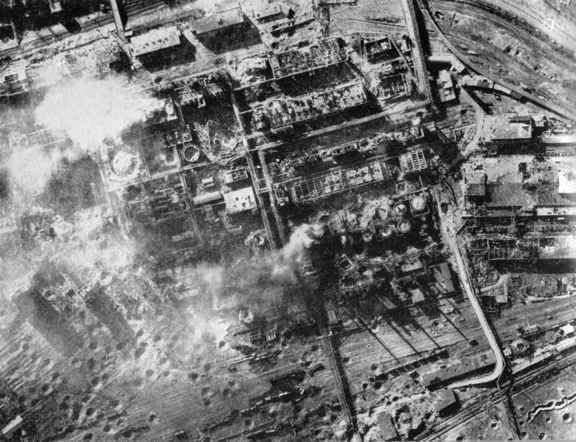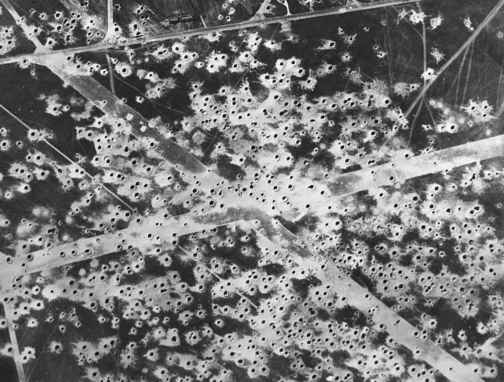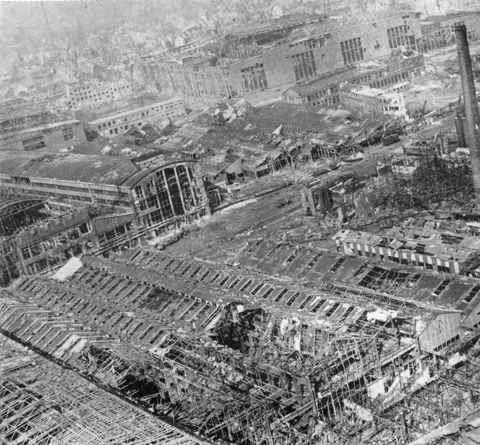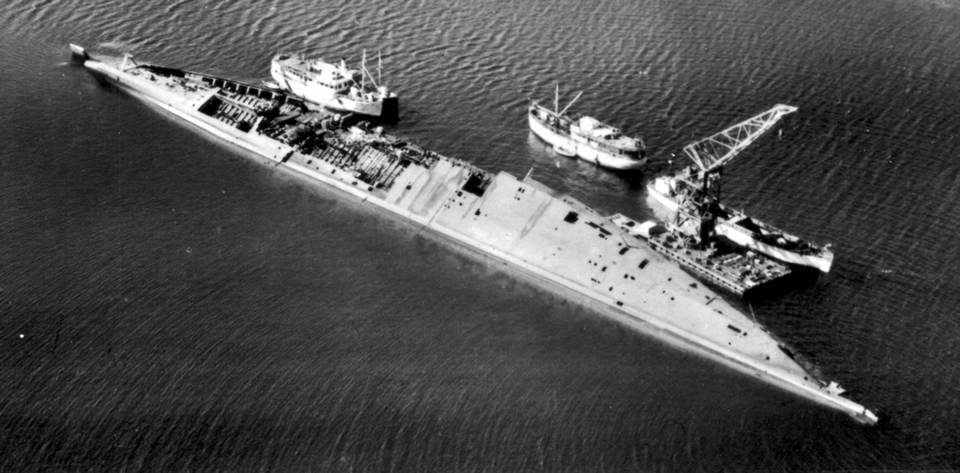For much of the war, Bomber Command was the only direct way of taking the fight to the enemy.
The Allies were under great pressure by the Soviets to invade occupied Europe and create a second front. The efforts and successes of Bomber Command made it possible to resist these pressures until a successful invasion was much more likely.
The enemy's industrial capacity was significantly reduced.
The Dambuster Raid raised the morale of Allies.
The destruction of the enemy's railway network contributed to the success of "D-Day."
Nazi V-2 missile development was delayed significantly.
Air-dropped mines denied the enemy the use of much of the Baltic Sea.
U-Boat construction and maintenance facilities were destroyed.
The Battleship Tirpitz and five other major warships were destroyed.
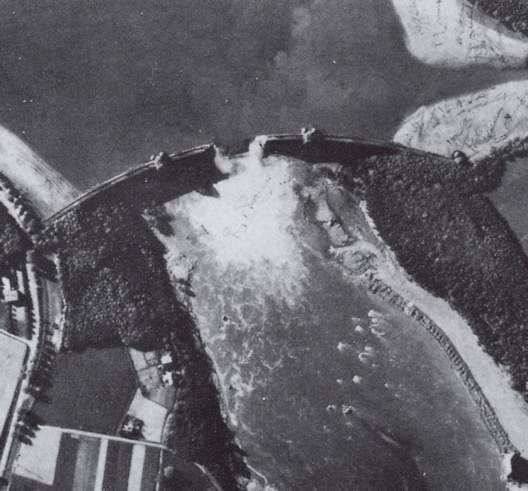
The Mohne Dam, breached by The Dambusters.
|

Mine being dropped into enemy water.
"The bomber offensive paved the way, through the destruction of the enemy air defences, oil resources, and transportation networks, for a successful invasion of Germany through Northwest Europe in 1944."
-David Bashow
|
"The massive achievements of Bomber Command will long be remembered as an example of duty nobly done."
-Winston Churchill
|
|
 Bomber Command
Bomber Command  |
Aircrew Chronicles
|
Aircrew Losses
|
Nose Art
|
BCATP
|
Lancaster
|
Media
|
Aircrew Chronicles
|
Aircrew Losses
|
Nose Art
|
BCATP
|
Lancaster
|
Media
 Bomber Command
Bomber Command  |
Aircrew Chronicles
|
Aircrew Losses
|
Nose Art
|
BCATP
|
Lancaster
|
Media
|
Aircrew Chronicles
|
Aircrew Losses
|
Nose Art
|
BCATP
|
Lancaster
|
Media


